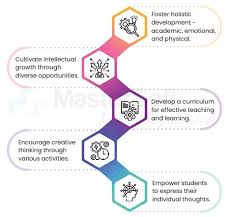National Curriculum Framework (NCF) 2005: Transforming Education in India
admin

Background of NCF 2005
The National Curriculum Framework (NCF) serves as a guiding document for educational practices in India. NCF 2005, the fourth iteration, aimed to revolutionize education by emphasizing holistic learning, flexibility, and inclusivity. Let’s explore its key features:
1. Connecting Knowledge to Life Outside School
- NCF 2005 encourages educators to bridge the gap between classroom learning and real-life experiences.
- Students should not merely memorize facts but understand their practical relevance.
2. Enriching the Curriculum Beyond Textbooks
- The framework advocates moving beyond textbooks as the sole basis for examination.
- Teachers are encouraged to incorporate diverse learning materials, including multimedia resources, field trips, and hands-on activities.
3. Integration of Exams with Classroom Life
- NCF 2005 suggests making examinations more flexible and integrated with regular classroom teaching.
- The focus is on assessing understanding, critical thinking, and application rather than rote memorization.
4. Nurturing Identity and Caring Concerns
- The framework aims to foster a sense of identity and dignity among students.
- It promotes values such as unity, non-violence, and empathy within the democratic fabric of the country.
5. Child-Centered Approach and Universal Enrollment
- NCF 2005 advocates a child-centric approach to learning.
- It emphasizes universal enrollment and retention up to the age of 14.
6. Quality, Quantity, and Equality in Education
- P. Naik described quality, quantity, and equality as the three pillars of the Indian education system.
- NCF 2005 strives to provide a standard framework for all schools, irrespective of gender, religion, caste, or creed.
Development of NCF 2005
- NCF 2005 draws inspiration from Rabindranath Tagore’s essay “Civilization and Progress,” emphasizing creativity and joy in childhood.
- It promotes inclusive education, decentralization, and interdisciplinary understanding.
In summary, NCF 2005 seeks to create a vibrant, learner-centric educational environment that prepares students for life beyond the classroom. It remains a cornerstone in shaping India’s educational landscape. 🌟
PDF After Blog
